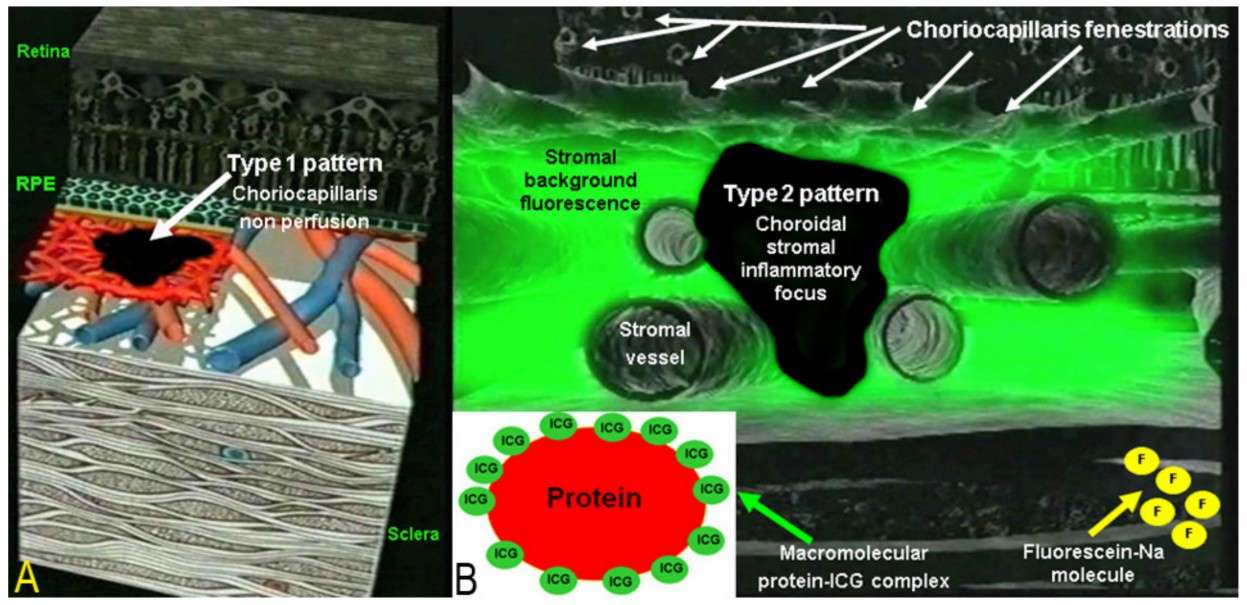- Home
- Solutions
- By Diseases
- Autoimmune Ophthalmic Diseases
- Choroiditis

Choroidits is the inflammation of the choroid which is a highly vascularized layer of an eye located between the retina and the sclera. Protheragen is a leader in the field of choroiditis diagnostics and therapeutics development. Our state-of-the-art facilities, preclinical research programs, and customized services enable us to provide comprehensive solutions for the detection, monitoring, and therapeutics of this complex ocular disorder.
Choroiditis refers to uveitis where there is an inflammatory process involving the choroid, which is the highly vascularized structure in the eye that is set between the sclera and the retina. Described this way, it may cause grave consequences in regard to vision, and in the absence of effective treatment, it will cause irreversible blindness. Choroiditis is separated into infectious and non-infectious; the latter is more prevalent and frequently linked with some autoimmune or inflammatory processes.
 Fig.1 Indocyanine green angiography (ICGA) patterns in non-infectious choroiditis. (Herbort Jr C. P., et al., 2021)
Fig.1 Indocyanine green angiography (ICGA) patterns in non-infectious choroiditis. (Herbort Jr C. P., et al., 2021)The development of choroiditis is due to complex immune processes working against the blood vessels of the choroid; in the case of non-infectious choroiditis, the most common underlying mechanism is an autoimmune reaction where choroidal tissues are attacked. These attacks can be from genetic susceptibilities, environmental influences, or from having underlying autoimmune disorders. For example, HLA-A29 Birdshot Retinochoroiditis has strong ties to the HLA-A29 allele which shows that there is a genetic component contributing to the disease's development. On the other hand, infectious choroiditis is due to viral, bacterial, or parasitic pathogens that directly assault and cause inflammation in the choroid.

Corticosteroids
The systemic usage of corticosteroid therapy remains one of the fundamental options in the therapeutics of choroiditis by controlling inflammation and protecting vision. In more severe cases, they are frequently used in conjunction with other immunosuppressive therapies.

Biologic Agents
Biologic therapeutics such as anti-TNF-α therapies, for example, infliximab, focus on particular aspects of the immune system responsible for choroiditis. These agents provide specialized therapeutic options for patients suffering from refractory or severe disease.

Immunosuppressive Agents
Mycophenolic acid, methotrexate, and azathioprine are drugs prescribed for modulation of the immune system and the management of inflammation in choroiditis. These agents are especially helpful when corticosteroids are not effective or have specific restrictions on their use.

Anti-VEGF Agents
Anti-VEGF agents are administered through intravitreal injections to treat choroidal neovascularization (CNV) which is often seen as an advanced complication of choroiditis. These agents help in vision preservation by preventing the formation of abnormal blood vessels and reducing leakage.
At Protheragen, we offer a comprehensive suite of diagnostics and therapeutics development services tailored to meet the unique needs of choroiditis patients. In terms of therapeutic development, we are at the forefront of innovative therapeutic strategies for choroiditis. Our preclinical research programs focus on the development of immunomodulatory therapies and anti-angiogenic therapies.

Protheragen provides robust preclinical research services for choroiditis, leveraging our extensive experience in ocular inflammation and immunology. Our services include in vitro and in vivo studies to evaluate the efficacy and safety of novel therapeutic candidates. If you are interested in our services, please feel free to contact us.
Reference
All of our services and products are intended for preclinical research use only and cannot be used to diagnose, treat or manage patients.